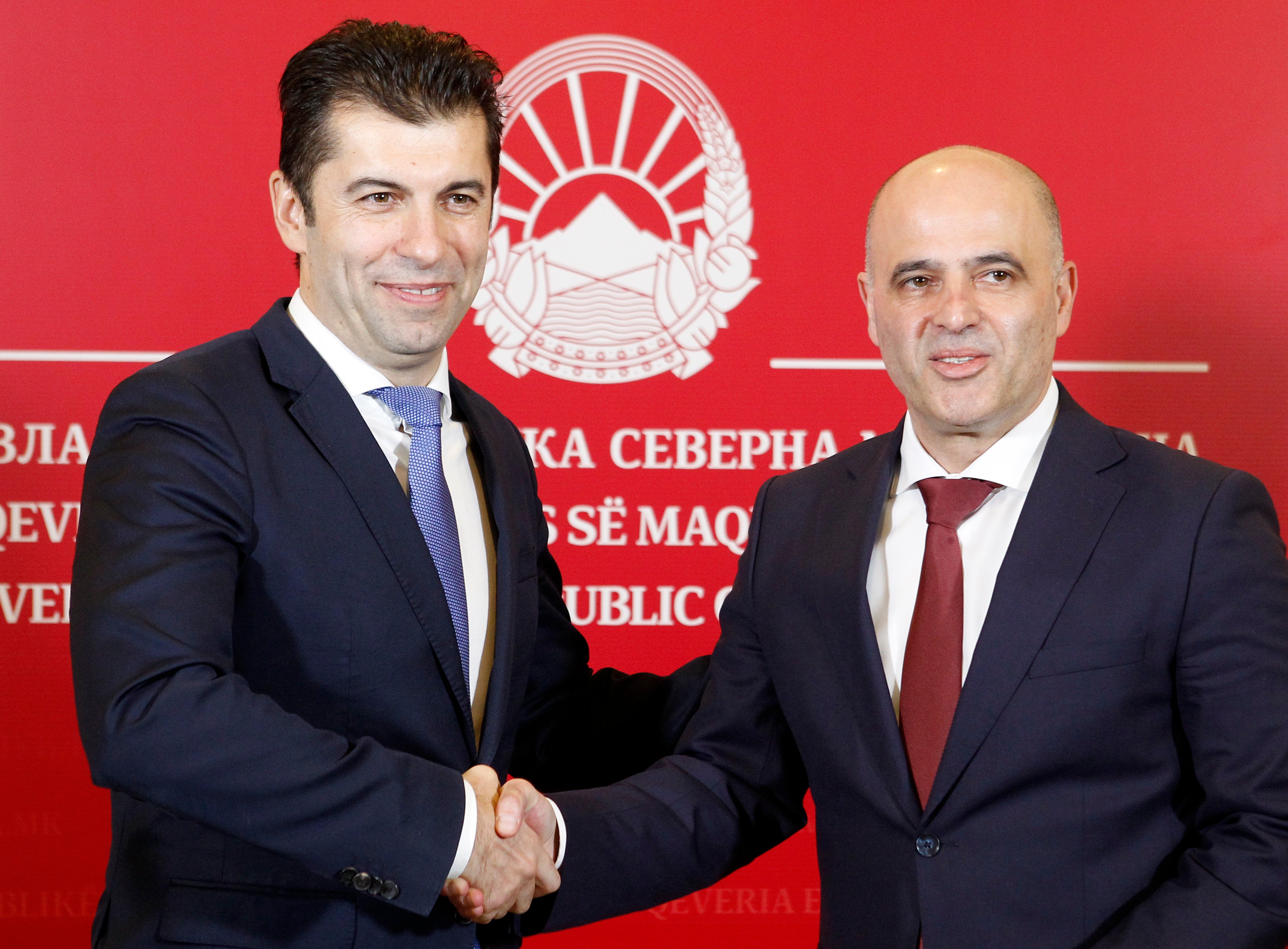Bulgarian PM visits North Macedonia to boost battered ties
The new prime ministers of North Macedonia and Bulgaria have agreed to redouble efforts to improve relations between the two Balkan neighbors, which soured after Bulgaria blocked North Macedonia’s bid to join the European Union

Your support helps us to tell the story
From reproductive rights to climate change to Big Tech, The Independent is on the ground when the story is developing. Whether it's investigating the financials of Elon Musk's pro-Trump PAC or producing our latest documentary, 'The A Word', which shines a light on the American women fighting for reproductive rights, we know how important it is to parse out the facts from the messaging.
At such a critical moment in US history, we need reporters on the ground. Your donation allows us to keep sending journalists to speak to both sides of the story.
The Independent is trusted by Americans across the entire political spectrum. And unlike many other quality news outlets, we choose not to lock Americans out of our reporting and analysis with paywalls. We believe quality journalism should be available to everyone, paid for by those who can afford it.
Your support makes all the difference.The new prime ministers of North Macedonia and Bulgaria agreed Tuesday to redouble efforts to improve relations between the Balkan neighbors, which soured after Bulgaria blocked North Macedonia’s bid to join the European Union
Bulgarian Prime Minister Kiril Petkov’s visit to Skopje came only two days after North Macedonia’s parliament confirmed the country’s new cabinet, led by Social Democrat leader Dimitar Kovachevski.
The two prime ministers told a joint press conference in Skopje that their “common goal is to create a better future” for both countries.
The simmering dispute came to a head in 2020, after EU member Bulgaria vetoed the start of its small neighbor’s formal accession talks with the 27-nation bloc. Bulgaria argued that Skopje had failed to honor parts of a friendship deal signed in 2017, particularly regarding shared history, and language.
This was deeply resented in Skopje, which had just recently settled a similar, decades-old dispute with neighboring EU member Greece that had cleared the way for North Macedonia to seek bloc membership. Under that deal, the country changed its name from the previous “Macedonia,” which Greece had said implied claims on its own territory and history.
“We have promised each other that we will use new energy to improve our relations with respect,” Kovachevski said. He added that both governments will have a joint meeting in Sofia on Jan. 25 with a plan to form joint working groups for cooperation in economic issues, infrastructure, European integration, trade, education, culture and history.
“I’m a huge optimist for the new dynamics (in relations) and can assure you that the results will be visible every week,” said Petkov, who received the mandate to form a government last month.
Kovachevski told reporters that Bulgaria has agreed to call its neighbor “North Macedonia,” — in addition to the lengthier formal version of “Republic of North Macedonia” — in bilateral communications. Until now Sofia had claimed that the shorter name implied territorial aspirations toward Bulgaria.
“Resolving the issue on the usage of the short name is the first huge step in our chapter, and this move provides optimism for the future,” Kovachevski said.
Sofia also insists that North Macedonia’s ethnic Bulgarian minority must be constitutionally recognized — like other minorities in the country — but rejects its neighbor’s argument that a Macedonian minority also exists in Bulgaria.
Six Western Balkan countries — Albania, Bosnia and Herzegovina, Kosovo, Montenegro, North Macedonia and Serbia — are on different stages in their quests to join the EU. Serbia and Montenegro have made the greatest progress, while Albania’s bid, being tied to North Macedonia’s, has also been blocked by the dispute between Sofia and Skopje.